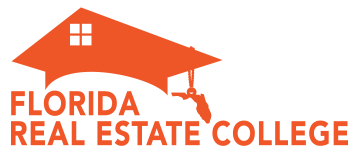
A property portfolio can be a powerful tool for building wealth over time. A property portfolio can be anything from rental homes to real estate investments trusts. Even though it might seem daunting at first, you can make the process easier than expected.
To begin building your property portfolio, you must first create a financial strategy for your investment goals. It will allow you to determine your asset-allocation model and how different types of investments will perform over time.
You should also identify your finance strategy. This will include how you are going to buy your investments and pay them back. There are a variety of financing options, such as SBA loans, traditional bank loan programs, or government-backed mortgages.
Build your real estate portfolio
Start small if you are a first-time investor. One or two properties may be enough. This will give you the opportunity to test your strategies and see how they work for you before investing large amounts of money into a larger portfolio.

Investing in properties with positive cash flow is a great way to increase your investment returns.
Cash-flowing properties produce monthly incomes that can be utilized to increase your investment portfolio. They are good investments for investors who don't have a lot of money and find it difficult to obtain financing.
Cash-flow positive properties are usually more profitable than the interest you pay. As such, they are often more attractive to lenders than non-cash-flow-positive properties.
Analytics for real estate
You should build your portfolio around analytical tools that allow you to see the performance of each asset. These include cap rate (rate of return), cash flow (rate of return), after repair value and loan repayment schedules.
Renting out your properties is a key part of growing your real estate portfolio, as it provides income that can be used to purchase more income-producing properties. Renters' cash can be used for other expenses such as mortgages and maintenance.
This cash can be used to refinance properties that you have rented out or buy more income-producing property. This will allow you to build your portfolio more quickly and also increase the cash flow that you receive each month.

Another way to build an investment portfolio is by using the fix-and-flip method. This involves buying property, renovating the property and then selling it. You may not be able to accurately predict how much money you'll make by doing a fix-and-flip, so research your local market and keep track of your numbers.
Syndication as a tool for growth in investment
Syndication is a great option for new real estate investors who want to scale their portfolios quickly and efficiently. This allows you to pool resources and partner with other real estate investors. You can buy properties you otherwise wouldn't be able to afford. It also allows you to expand your portfolio into other asset classes such as mobile home parks and land.
FAQ
How can I repair my roof?
Roofs can leak because of wear and tear, poor maintenance, or weather problems. Repairs and replacements of minor nature can be made by roofing contractors. Contact us for further information.
What is a reverse loan?
A reverse mortgage allows you to borrow money from your house without having to sell any of the equity. It allows you access to your home equity and allow you to live there while drawing down money. There are two types to choose from: government-insured or conventional. With a conventional reverse mortgage, you must repay the amount borrowed plus an origination fee. FHA insurance covers the repayment.
Should I use an mortgage broker?
A mortgage broker may be able to help you get a lower rate. Brokers work with multiple lenders and negotiate deals on your behalf. Some brokers do take a commission from lenders. You should check out all the fees associated with a particular broker before signing up.
Is it possible for a house to be sold quickly?
You may be able to sell your house quickly if you intend to move out of the current residence in the next few weeks. There are some things to remember before you do this. First, you will need to find a buyer. Second, you will need to negotiate a deal. You must prepare your home for sale. Third, advertise your property. Lastly, you must accept any offers you receive.
Can I buy a house without having a down payment?
Yes! Yes! There are many programs that make it possible for people with low incomes to buy a house. These programs include FHA, VA loans or USDA loans as well conventional mortgages. For more information, visit our website.
Statistics
- The FHA sets its desirable debt-to-income ratio at 43%. (fortunebuilders.com)
- When it came to buying a home in 2015, experts predicted that mortgage rates would surpass five percent, yet interest rates remained below four percent. (fortunebuilders.com)
- This seems to be a more popular trend as the U.S. Census Bureau reports the homeownership rate was around 65% last year. (fortunebuilders.com)
- It's possible to get approved for an FHA loan with a credit score as low as 580 and a down payment of 3.5% or a credit score as low as 500 and a 10% down payment.5 Specialty mortgage loans are loans that don't fit into the conventional or FHA loan categories. (investopedia.com)
- Private mortgage insurance may be required for conventional loans when the borrower puts less than 20% down.4 FHA loans are mortgage loans issued by private lenders and backed by the federal government. (investopedia.com)
External Links
How To
How to Locate Real Estate Agents
The real estate market is dominated by agents. They can sell properties and homes as well as provide property management and legal advice. Experience in the field, knowledge about your area and great communication skills are all necessary for a top-rated real estate agent. You can look online for reviews and ask your friends and family to recommend qualified professionals. A local realtor may be able to help you with your needs.
Realtors work with homeowners and property sellers. A realtor's job is to help clients buy or sell their homes. Realtors assist clients in finding the perfect house. Most realtors charge a commission fee based on the sale price of the property. Some realtors do not charge fees if the transaction is closed.
The National Association of REALTORS(r) (NAR) offers several different types of realtors. Licensed realtors must pass a test and pay fees to become members of NAR. The course must be passed and the exam must be passed by certified realtors. NAR recognizes professionals as accredited realtors who have met certain standards.